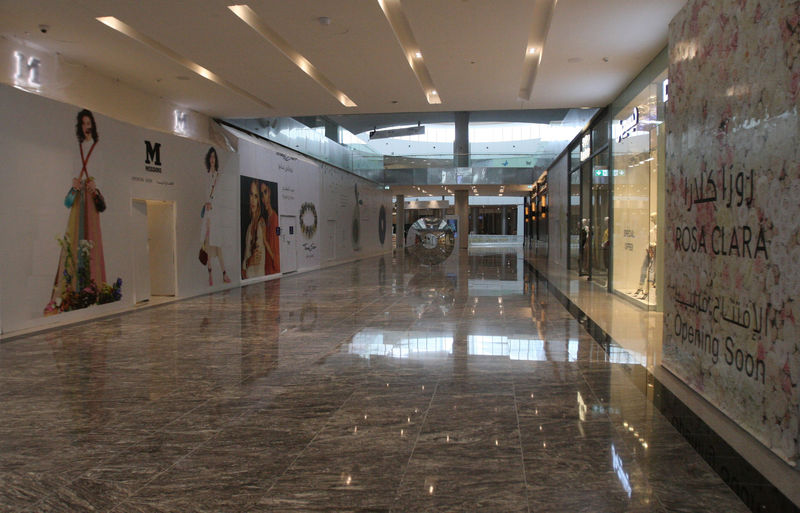By Davide Barbuscia and Tom Finn
DUBAI/DOHA (Reuters) - The refinancing of a $1 billion loan by Doha Festival City, a retail and hospitality complex in Qatar, has been indefinitely postponed as a diplomatic crisis deters regional banks from doing new Qatari business, bankers said.
The refinancing, coordinated by Doha-based investment bank QInvest, was marketed earlier this year to both Qatari and regional banks, including institutions in the United Arab Emirates. It was to have been larger in size than the original loan - perhaps around $1.2 billion, bankers said.
But Saudi Arabia, the UAE, Egypt and Bahrain cut diplomatic and transport ties with Qatar on June 5, accusing it of supporting terrorism, and the proposed deal has been put on hold, the sources said.
Two Qatari bankers involved in the deal told Reuters that the diplomatic crisis was the main reason for the deal being postponed, as it had reduced banks' appetite for the transaction. The sanctions against Qatar meant non-Qatari banks would not participate, a senior banker in Doha said.
"Originally, the refinancing included some of the original lenders plus big banks from the UAE. Now it is not clear that the deal is going to happen," he said, speaking on condition of anonymity as the matter is private.
"After the sanctions, the deal became more and more unlikely - politics didn't improve things."
Another banker said Qatari banks looked at the refinancing when market interest rates were lower, but they were no longer keen on it now the crisis had tightened liquidity in the local market. The three-month Qatar interbank offered rate
"Now it's definitely not a priority. Banks, and their shareholders, have other things to worry about," the second banker said.
The boycotting countries' central banks have stopped short of explicitly asking commercial banks under their jurisdiction to stop lending to Qatar. But unofficial guidance by their governments has caused most regional banks to freeze new loan transactions for Qatari borrowers since last month.
Doha Festival City, which includes the world's biggest store under the brand name of French retailer Monoprix, is owned and developed by Bawabat Al-Shamal Real Estate Co, a joint venture comprising Dubai-based Al-Futtaim Real Estate Services, Qatar Islamic Bank (QA:QISB), Aqar Real Estate Investment Co and a private Qatari investor.
It raised some 3.7 billion Qatari riyals ($1.02 billion)in 2012 through a 10-year syndicated loan to finance development of the project, which had an estimated total cost of around 6 billion riyals.
That loan, comprising conventional and Islamic tranches, was led by QInvest with Commercial Bank of Qatar and Barwa Bank as mandated lead arrangers. Ahli Bank, Doha Bank, International Bank of Qatar, Al Khaliji Commercial Bank, Qatar International Islamic Bank and Qatar National Bank also participated.
Doha Festival City's shopping mall opened last April after a months-long delay which the owners attributed to issues with supporting infrastructure. Many of the mall's stores have not yet opened to the public.
Mall and hotel owners in Qatar have expressed concern about a dwindling customer base after government bodies fired thousands of expatriates in recent years amid declining global oil and gas prices.

The sanctions against Qatar could worsen that situation, although because of Doha's huge financial reserves, analysts do not expect an economic crisis.